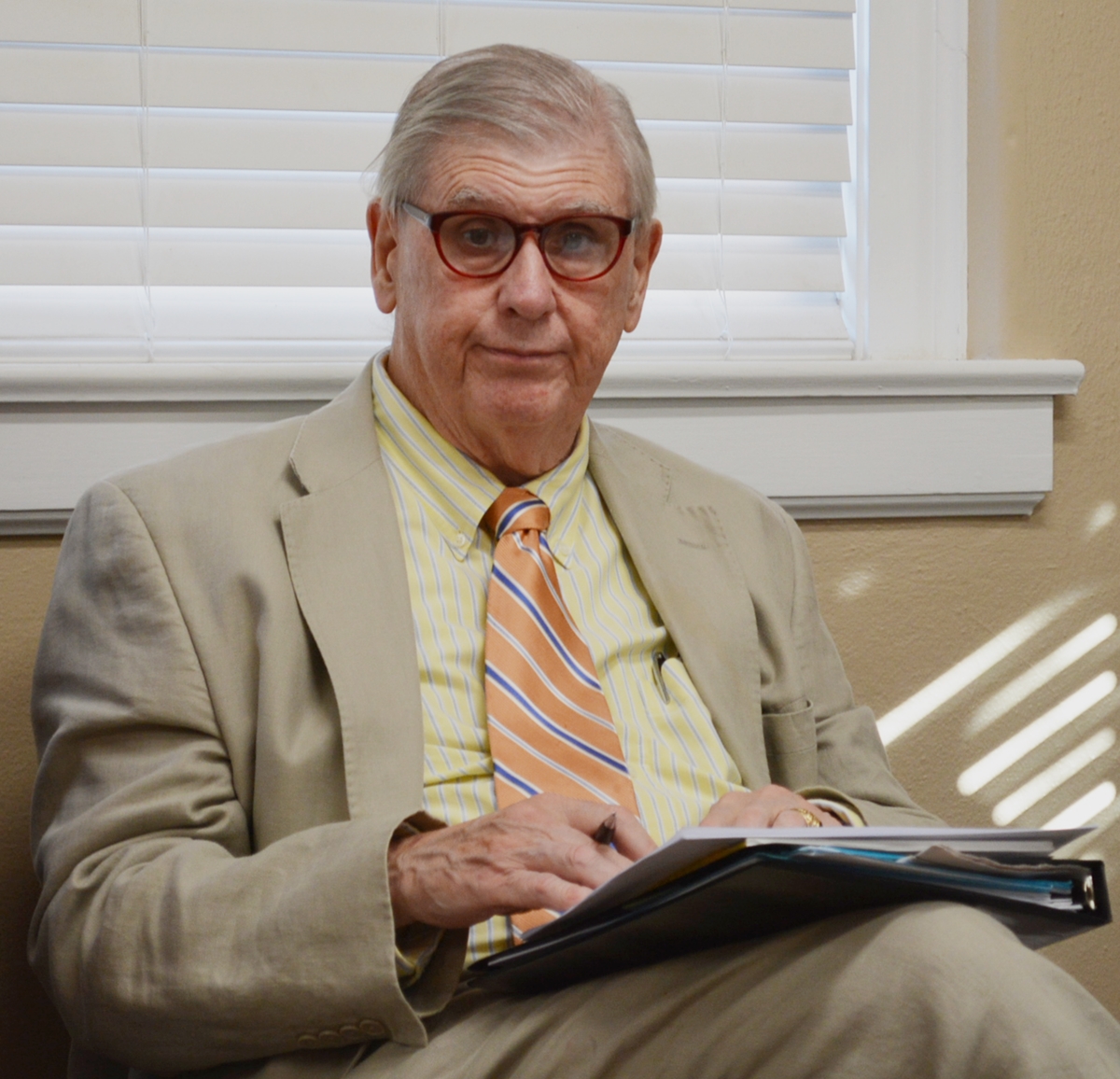Council updated on electric situation

PRESCOTT – Dave Wilson, Prescott’s attorney in the city’s utility case against SWEPCO, gave the Prescott City Council and overview of the history of the situation at its June meeting Monday night.
On hand to discuss the situation were: Henry Thompson, the city’s utility consultant, Larry Jones, Jr., electrical operations manager, Glenn Vasser, city attorney, and Bruce Bean, office manager.
Vasser began by telling the council the city has been exploring the bill problem for the last two years, as the city is being double billed for the transmission of electricity and it’s caused problems with high utility bills. This situation, he said, didn’t exist when the city negotiated its contract with SWEPCO, and, since it began, the city has been negotiating with SWEPCO to see about getting these fees wiped out. He told the panel SWEPCO made a proposal to build a way out of the situation.
Wilson said the problem began in the 1930s when Congress decided to let utility companies decide how to bill grids, and a vertically integrated system was put in place. In Prescott’s case, the city does the distribution. He pointed out Prescott was the first city in the state with its own public power company, but more followed. However, he added, what the utility companies did was haphazard. He told the council about the different systems, letting them know Prescott falls between the MISO and Southwest Power Pool lines and is charged by both for the transmission of electricity.
In 2005, he said, the Arkansas Public Service Commission (PSC) was involved with the Grand Gulf situation. The end result was Entergy getting control and moving from the Southwest Power Pool to MISO, with the PSC agreeing. This, though, created an anomaly as Prescott wound up between two grid boundaries and has been double-billed since.
Hope Power and Light was in the same situation, but eventually chose to stay with SWEPCO.
Entergy, Wilson said, proposed constructing a transmission system with a substation and having Prescott and Hope pay for it. This would have allowed both communities to get out from under MISO. SWEPCO, he said, promised to get rid of the pancake rates, but never followed through.
SWEPCO, he continued, promised to work with Prescott and Hope, but again went back on its word and wouldn’t deal with Prescott. In 2015-16, litigation was threatened, as was leaving SWEPCO and MISO and going to another provider. Earlier this year Congress agreed to permit private third party participants to come in and build transmission lines.
“SWEPCO is impervious to Prescott’s needs,” Wilson said. SWEPCO, he added, provided a revised term sheet which doesn’t help Prescott. He told the council Prescott has a number of options. One is to do nothing, and this is a bad idea. Another is to find a different supplier, while a third is to ask the Federal Energy Regulatory Commission (FERC) to intervene and force SWEPCO to change the contract.
Jones said SWEPCO doesn’t want to help Prescott with the transmission costs, though the city has asked for help with the costs or to have these charges waived. SWEPCO, he added, declined the offer. Last year, he continued, Prescott paid $770,000 in pancake charges on one side and more than $600,000 on another.
Vasser said should the city decide to build a substation, which would cost between $2 and $4 million, a bond issue would have to be passed to pay for it. He said this isn’t the city’s best solution.
Thompson said the line would be in place by 2020, according to SWEPCO, for Hope and Prescott, but the transmission costs until then would still be about $1.4 million annually. Once the substation is built, the transmission costs would drop by 50 percent. In addition, he said the city would have to build in a redundancy with two transformers so one could be serviced and the other maintain the load. This would add more to the cost of the substation.
Mary Godwin, executive director of the Prescott-Nevada County Economic Development Office, pointed out Firestone pays about $700,000 of the transmission costs.
Vasser said the substation isn’t a reasonable alternative to the problem.
Wilson said there are other options. One is for SWEPCO to discontinue and have them eat an amount agreeable to Prescott on transmission charges and make the charges an investment, along with picking up half the cost of a new substation. This, he added, would mean returning to the mediation process and SEEPCO has been less than cooperative. Other options include litigation and asking FFERC to change the contract. “It’s not an easy matter to get utility companies to make changes.” Part of the problem is Entergy owns the transmission lines and substation which go through MISO, causing Prescott to have to pay on two different sets of lines.
Vasser compared it to toll roads, saying the way things are set up Prescott is having to pay tolls twice for the same road. He told the council it would have to take some kind of action in order to proceed, including rejecting SWEPCO’s proposal, negotiating a better deal, going to FERC to renegotiate or amend the current contract, or sue. “We need the authority to move forward.
“If we get to litigation,” he continued, “we’ll need authority before we can reach a settlement from the entire council.” It was asked if a member of the council could be on the negotiating committee. Vasser said he saw no problem with it, but if two or more councilmen were on the committee it would get into Freedom of Information Act territory.
In the end, the council voted to give the committee the authority to continue negotiations and explore other options.




Solution is for prescott to sell its lines and get out of the power distribution business. it would be a different story IF Prescott produced the power themselves, it would be the producer and distributor. Stop being the distributor and let one of the power companies come in and offer cheaper electric rates to Prescott. That’s the solution. No one in the above article mentioned that as a solution. Lots of cities aren’t in the power distribution business and still make it financially.
Sam, since you have all the answers, why don’t you run for a council seat next year, or, possibly run for mayor?